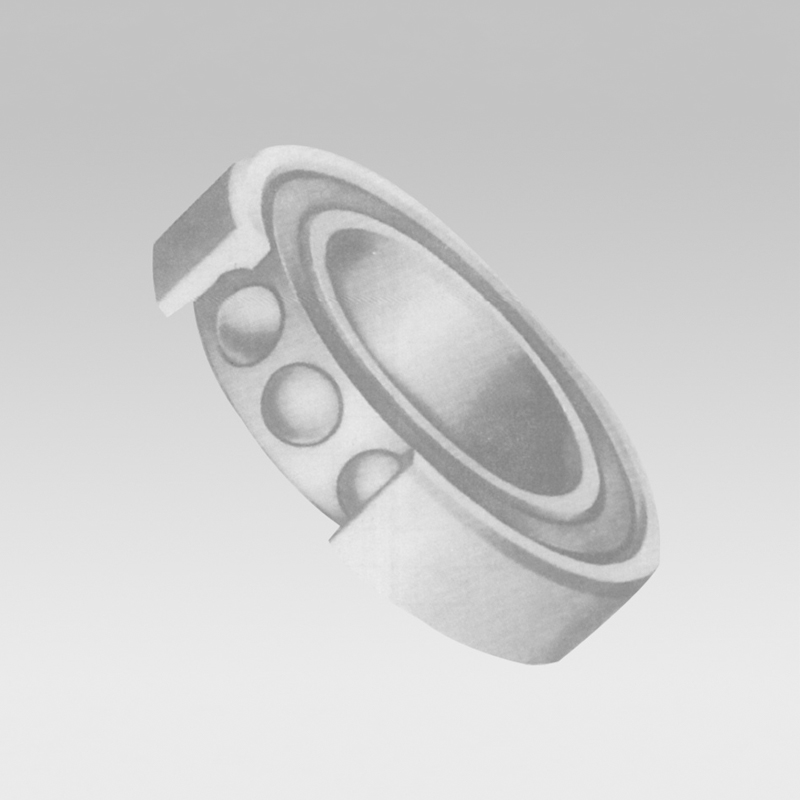
Nov . 08, 2024 13:36 Back to list
Plastic Deep Groove Ball Bearings for Enhanced Performance and Durability in Various Applications
The Rise of Plastic Deep Groove Ball Bearings Innovation in Motion
In recent years, plastic deep groove ball bearings have emerged as a compelling alternative to traditional steel ball bearings. This shift is driven by advancements in materials science, the growing demand for lightweight components, and the need for corrosion resistance in various industrial applications. As industries continue to innovate, understanding the advantages and applications of plastic deep groove ball bearings is crucial.
Understanding Deep Groove Ball Bearings
Deep groove ball bearings are one of the most commonly used types of rolling bearings. They consist of an inner and outer ring, a cage, and a set of balls that run in the raceways. This design allows them to accommodate both radial and axial loads, making them versatile for various applications, including automotive, aerospace, and industrial machinery.
Traditionally, these bearings have been made from metals like steel, which offer durability and strength. However, the introduction of plastics into bearing design has altered the landscape, providing unique benefits that were previously unattainable.
Advantages of Plastic Deep Groove Ball Bearings
1. Corrosion Resistance One of the most significant advantages of plastic deep groove ball bearings is their inherent resistance to corrosion. Unlike metal bearings that can rust when exposed to moisture or harsh chemicals, plastic bearings maintain their integrity and functionality in wet or corrosive environments. This quality makes them particularly valuable in industries such as food processing, pharmaceuticals, and marine applications.
2. Lightweight Plastic bearings are notably lighter than their metal counterparts. This reduction in weight can lead to improved energy efficiency and ease of installation. In applications where weight is critical, such as in aerospace and automotive industries, the use of plastic bearings can contribute to overall performance improvements.
3. Lower Noise and Vibration Plastic bearings typically generate less noise and vibration during operation compared to metal bearings. This characteristic can enhance the performance and comfort of machinery, particularly in applications requiring precision and low-operating sound levels, such as in electric motors and home appliances.
plastic deep groove ball bearings

4. Cost-Effectiveness While the initial cost of plastic deep groove ball bearings may be comparable to or slightly higher than steel bearings, they often provide long-term savings due to their durability and low maintenance requirements. Their resistance to wear and environmental factors can lead to extended lifespan and reduced replacement costs.
5. Design Flexibility The manufacturing process of plastic bearings allows for significant customization in terms of size, shape, and material composition. This versatility enables engineers to design solutions tailored to specific operational needs, providing greater innovation in product development.
Applications of Plastic Bearings
Plastic deep groove ball bearings are utilized in numerous industries, showcasing their versatility and efficacy. Common applications include
- Automotive Components Used in electric window mechanisms, wipers, and other systems where weight reduction is beneficial and resistance to moisture and chemicals is critical. - Medical Equipment Employed in devices that require sterile components, where the risk of corrosion could compromise functionality or safety.
- Consumer Electronics Used in precision devices such as printers, where low noise and smooth operation are essential.
- Food and Beverage Ideal for equipment exposed to frequent washing and sanitizing, as they do not suffer from rust or corrosion.
Conclusion
The adoption of plastic deep groove ball bearings signifies a notable advancement in bearing technology, driven by the need for lighter, more durable, and corrosion-resistant components. As industries continue to push the boundaries of innovation, the versatility and many benefits of plastic bearings will likely see increased demand. This shift not only enhances efficiency and performance but also contributes to sustainable practices by reducing wear and resource consumption. In a rapidly evolving industrial landscape, plastic deep groove ball bearings stand out as a testament to the future of engineering solutions.
Latest news
-
Durable Greenhouse Pillow Block Bearings for Reliable Ventilation
NewsAug.31,2025
-
Spherical Roller Bearings Applications: Heavy Duty, Self-Aligning
NewsAug.30,2025
-
Premium Deep Groove Ball Bearings | High Speed & Reliability
NewsAug.29,2025
-
Durable Scaffolding Clamps - Secure & Reliable Tube Connectors
NewsAug.28,2025
-
Common Failures in Thrust Ball Bearings and Solutions
NewsAug.22,2025
-
How Tapered Roller Bearings Can Take Shock Loads
NewsAug.22,2025
